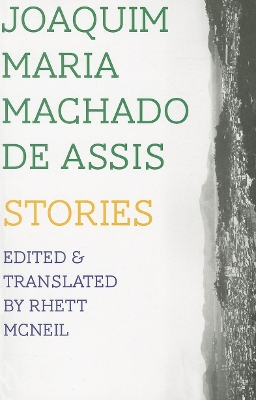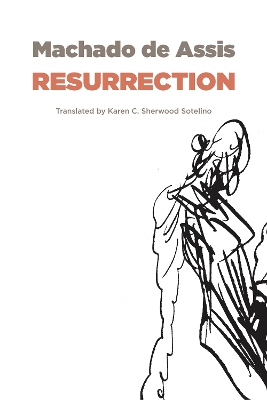Brazilian Literature
2 total works
Featuring ten stories never before translated, dating from 1878 to 1886 (regarded as Joaquim Machado de Assis’s most radically experimental period), this selection of short fiction by Brazil’s greatest author ranges in tone from elegiac and philosophical to impishly ironic. Including the author’s classic essay on world literature–also appearing in English for the first time–and with pieces chosen from his vast body of work for their playfulness, pathos, and stylistic subversion, this collection is an ideal introduction to one of world literature’s greatest talents.
“A prodigy of accomplishment…deserving of a permanent place in world literature” – Susan Sontag
“Everything about Joaquim Maria Machado de Assis seems double. There’s before and after, domestic and metaphysical, high and low, black and white, erotic and austere, short and long, trapped and free, gentle and cruel, perceived and real. The 200 or so stories he wrote spin out these oppositions into a remarkable variousness.”–Peter Robb, Times Literary Supplement
“There is in Machado’s prose a playfulness that teases the reader, humor that mocks solemnity and seriousness. He punctures pretentiousness and ridicules received ideas (…) The range of allusions in his work would have amazed even Nabokov. And as with Nabokov, indeed as with any work of art which gives us what Nabokov calls the shiver between the shoulder blades, what elicits one’s astonished admiration is not to do with subject matter…but with that abstract and elusive concept…which manifests itself in that purely aesthetic thing called style.” – Zulfikar Ghose, Context No. 12
“A prodigy of accomplishment…deserving of a permanent place in world literature” – Susan Sontag
“Everything about Joaquim Maria Machado de Assis seems double. There’s before and after, domestic and metaphysical, high and low, black and white, erotic and austere, short and long, trapped and free, gentle and cruel, perceived and real. The 200 or so stories he wrote spin out these oppositions into a remarkable variousness.”–Peter Robb, Times Literary Supplement
“There is in Machado’s prose a playfulness that teases the reader, humor that mocks solemnity and seriousness. He punctures pretentiousness and ridicules received ideas (…) The range of allusions in his work would have amazed even Nabokov. And as with Nabokov, indeed as with any work of art which gives us what Nabokov calls the shiver between the shoulder blades, what elicits one’s astonished admiration is not to do with subject matter…but with that abstract and elusive concept…which manifests itself in that purely aesthetic thing called style.” – Zulfikar Ghose, Context No. 12
Machado de Assis's first novel visits themes the author developed exquisitely throughout his career including marriage, memory, and perspective. In this insightful translation by Karen Sherwood Sotelino, and with an introduction by José Luiz Passos, the novel reveals the author’s early experiment in drawing out psychological and sociological issues of his times. Readers familiar with his mature works will recognize the progression from infatuation, through passion, doubt, and toxic jealousy, as experienced by protagonists Félix and Lívia in 19th century Rio de Janeiro.

